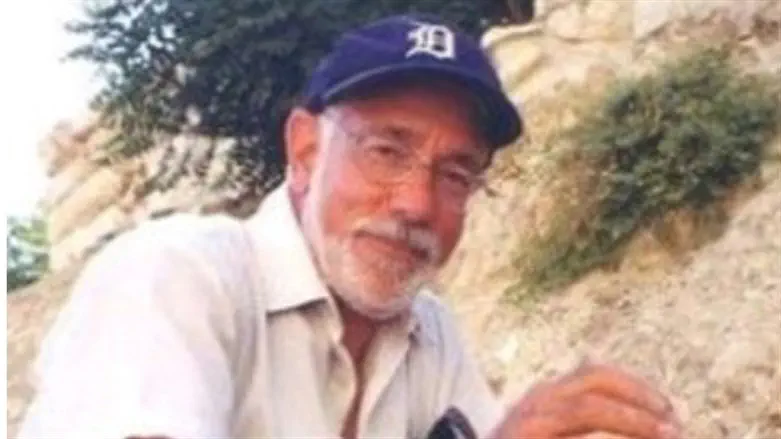
A powerful and persuasive argument, it has been used for nearly a century to advocate for a “two-state solution” (2SS), an Arab and a Jewish state in Palestine. The 2SS, however, was consistently rejected by Arab Palestinians because they claim all of Palestine; they reject the right of a Jewish state to exist in any form. According to a legal expert, this nullifies their claims for statehood.
As Professor of Law, Steven E. Zipperstein, explains in his book, “Zionism, Palestinian Nationalism and the Law, 1939-1948,” by rejecting a 2SS, and carrying on a war against Israel, Arabs have “waived their legal right to sovereignty over the portion of Palestine the United Nations has allocated to them (in 1947).”
The UN and the international community, however, support the 2SS and the “Right of Return” for Arabs who claim to have lost homes and property as a result of the war in 1948-49. Although UNRWA was established to care for Arab refugees, it now supports millions of descendants who live throughout the region, in Israel, in UNRWA-administered “camps,” towns, and villages in Lebanon, Syria, and the “West Bank.”
Arab Palestinians claim that “the right of self-determination” (statehood) is based on international law. According to Diakonia’s International Humanitarian Law Center, it is “one of the core principles of international law” and “one of the purposes of the United Nations.”
Humanitarian laws, however, are not and never were intended to protect terrorists, or to give them a state. The right of self-determination is conditional. It does not apply, for example, to terrorists who seek to harm others. Nor does it apply to groups which are part of larger groups, or those which serve as proxies for others.
Nevertheless, the right of self-determination and joining a “peace process” was the basis upon which the Israeli government took a risk and agreed to the Oslo Accords. These Accords, however, meant different things to its signers.
For Israel, it meant ending terrorism, and peace; for Arafat and the PLO it meant a step towards destroying Israel. This confusion is why the “peace process” and the 2SS failed, and remain so. Opposing Israel’s existence is the core of Arab Palestinian nationalism; it’s their anthem, the “Nakba.” It’s what fuels the conflict.
Those who promoted the Accords rescued Yasser Arafat from his exile in Tunisia and his well-deserved reputation as a terrorist leader. The Accords provided him and the PLO with legitimacy, territory (as the Palestinian Authority), power and funding which they use to engage in terrorism and support for terrorism.
There was no misunderstanding of what is written in the Accords. Shortly after signing them, Arafat announced that he had no intention of fulfilling his obligations. Despite this, however, Israeli leaders and the international community ignored the role of Arafat and the PLO in promoting terrorism. Many continue to support the 2SS as “Palestinian self-determination.” Diakonia is a key promoter of this subterfuge.
Diakonia is a powerful foreign-funded NGO that focuses exclusively on what it calls Israel’s violations of international law. A “faith-based (religious) Swedish development organization,” it claims to promote “human rights, democracy, social and economic justice, gender equality, conflict resolution, and justice.” In reality, however, it is a political NGO that demonizes Israel for “occupying Palestinian territory” (OPT), and demands that Israel withdraw to the 1949 Armistice lines, and supports the 2SS. It partners with and assists other anti-Israel NGOs, including the World Council of Church’s Ecumenical Accompaniment Program in Palestine and Israel (EAPPI). The EAPPI brings volunteers from around the world “to witness Israel’s crimes against Palestinians,” and then return home to spread anti-Israel propaganda and antisemitism.
Diakonia's International Humanitarian Law (IHL) program includes workshops for academics and legal professionals that promote the canard that Israel is guilty of violating international law, apartheid and war crimes, while whitewashing Arab Palestinian terrorism.
According to NGO-Monitor’s Gerald Steinberg, "this entirely political opinion, disguised as international law, is cited repeatedly by groups such as Human Rights Watch and the UN in their systematic demonization of Israel. Diakonia is also a major player in the ongoing campaign pressing the International Criminal Court to open bogus war-crimes prosecutions against Israel.”
Diakonia’s perversion of IHL is morally outrageous. Yet, supported by the EU, Swedish, Swiss, and Dutch governments, Diakonia has immense influence throughout the international community.
Helping and protecting vulnerable people is worthy and important, but using “humanitarian law” to vilify Israel, ignore Arab Palestinian terrorism, and promote anti-Semitism is wrong.
Why are anti-Israel NGOs, like Diakonia, allowed to operate freely in Israel?
Steinberg explains: “Political advocacy NGOs like Diakonia, disguised as humanitarian organizations, are given visas under this facade. Instead of control and oversight by the MFA or MOD, humanitarian NGO visas are the responsibility of the ministries of Social Welfare and Interior. These ministries lack the expertise and intelligence capabilities necessary to provide oversight and monitoring of NGO activities, allowing the humanitarian charade and abuse to continue.”
This self-defeating policy can and must be changed.